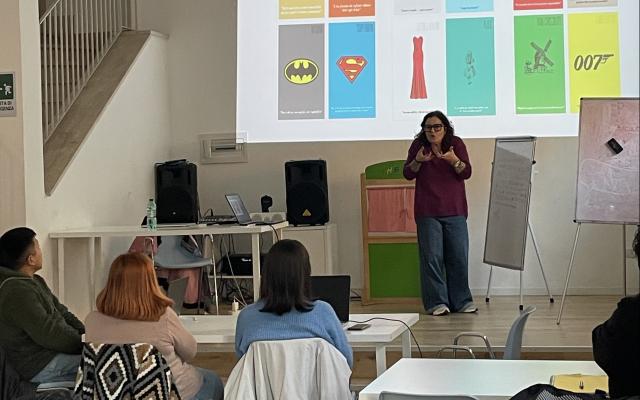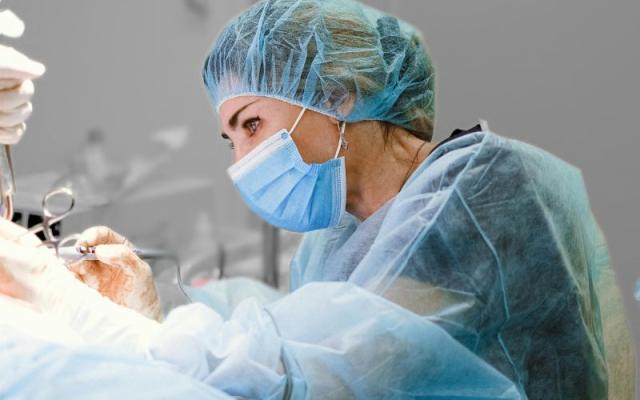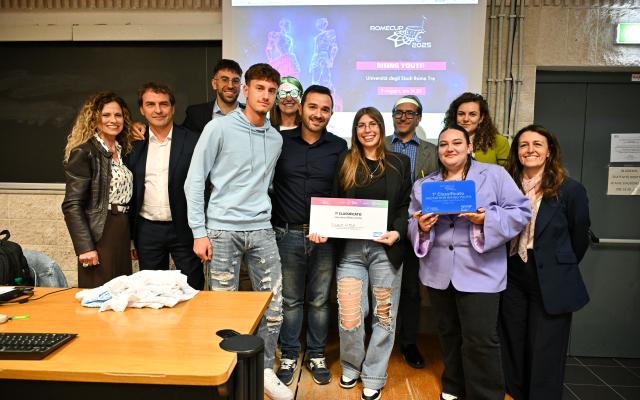The importance of oncological prevention
A new Factor J session was held yesterday at the A. Spinelli European State International School in Turin. The session focused on a correct lifestyle and prevention in oncology. Space was also dedicated to insight on the role of research in identifying increasingly innovative and effective therapies, in treating some of the oncological pathologies with the highest impact on society, such as lung cancer, which in Italy affects over 40,000 people every year, with an increase in both men and women.
“There are two main types of lung cancer: small cell and non-small cell. The second is the most frequent and corresponds to about 80 percent of newly diagnosed neoplasms," explains Simona Carnio, thoracic oncologist at the San Luigi Gonzaga University Hospital in Orbassano. "Early diagnosis and prevention in the context of smoking can make the difference in the treatment of lung cancer in addition to the personalization of treatments based on the use of targeted therapies and immunotherapy.”
The event, which involved about one hundred students, was attended by Alessandro Stecco, President of the Health Commission of the Piedmont Regional Council, and Stefania Vallone, General Secretary of the Women Against Lung Cancer in Europe (Walce) association, engaged in the fight against thoracic neoplasms.
“We are very proud of the oncological network in Piedmont and the Valle D'Aosta. It is the oldest in Italy. From the 90s to today, we have made great steps forward and continue to work on this issue and on that of PDTAs as closely related concepts. We have interdisciplinary groups representing the specialists who collaborate on the evaluation of therapies; the CAS reception centres, which represent the arrival point for oncological patients and their management from the point of view of assistance and, in between, structures driving research and value, with a more welfare value, between hub and spoke hospitals, and which have developed increasingly specific skills for their missions. Furthermore, our region was the first to set up a molecular tumour board which is based in the City of Health of Turin," points out Alessandro Stecco, President of the Health Commission of the Piedmont Regional Council.
Factor J aims to contribute together with school communities to raise the awareness of the new generations on the importance of correct scientific information, prevention, and health. A recent IPSOS survey, promoted by Janssen Italia, on a representative sample of the population, revealed that although the majority of Italians (6 out of 10) are fully convinced of the key role that lifestyle and personal behaviours have on the probability of developing a tumour, more than one out of three consider these elements to be of little relevance and 6% completely deny their importance.
“Proper information on risk factors, behaviours, and lifestyles is essential to promote cancer prevention; primarily for some types of lung cancer, caused by smoking in 85-90% of cases. We are here today because it is precisely from young people and schools that awareness on how to prevent and combat oncological pathologies must be driven throughout society," explains Stefania Vallone, Secretary General of Walce. "Prevention, in fact, is a decisive element to combat pathologies - and life expectancy and quality of life have significantly improved thanks to innovative therapies resulting from scientific research - which we would like to see completely eradicated in the near future".
“For more than thirty years, Janssen Oncology has been contributing significantly to the improvement of therapies, quality and life expectancy of cancer patients, especially those suffering from solid or blood forms of cancer for which treatment options have been limited,” explains Alessandro Borriello, Business Unit Director Oncology-Haematology, Janssen Italy. “We are passionately engaged in scientific research with the aim of transforming our mission into reality: to make onco-haematological diseases increasingly manageable and even curable in the future. It is a challenge that we can face and overcome, however, only by continuing to collaborate with all the players in the health system, including in awareness-raising initiatives such as Factor J, which help to instil correct information and trust in science".
Yesterday's meeting reinforces the objective of Factor J which, after having reached out to over 200,000 students in the past two editions, continues its calendar of on-site and online lessons in various Italian regions involving over 3 thousand high school students.
Students who have participate in Factor J are also involved in practical sessions on podcasting techniques, video making, graphics and storytelling, to participate in a contest that will see them as protagonists of their story on the "health of the future". The projects will be selected and judged by an exceptional jury made up of professionals from the world of communication and science. The prizes in the individual categories will be awarded at an event in Milan in May. The projects will be promoted on various platforms.
“With respect to behaviours and lifestyles, there is still a gap to bridge, the one between information and the effective adoption of healthy behaviours,” emphasises Mirta Michilli, Director General of the Fondazione Mondo Digitale. “According to a recent report on participation in disease prevention screening programs (ASIM), for example, there is great awareness in all age groups. Yet 70 percent of people are convinced that maintaining a careful lifestyle can help but will not avoid health problems. And based on this, they do not pay attention to important practices in everyday life that could make a difference. This is the reason why initiatives such as Factor J aim to influence actions by strengthening links with reference value schemes, breaking down all gaps between personal beliefs and correct behaviour."
"The presentation of the collaboration between the Fondazione Mondo Digitale and Janssen Italia, the pharmaceutical company of the Johnson & Johnson Group, is an important moment for students at the Spinelli European International School to reflect on their choices and their professional future. I hope they will face all decisions with courage, even in the case of demanding and long-term choices, such as the Faculty of Medicine and Scientific Research," declared Silvia Viscomi, Director of the A. Spinelli European State School in Turin.




